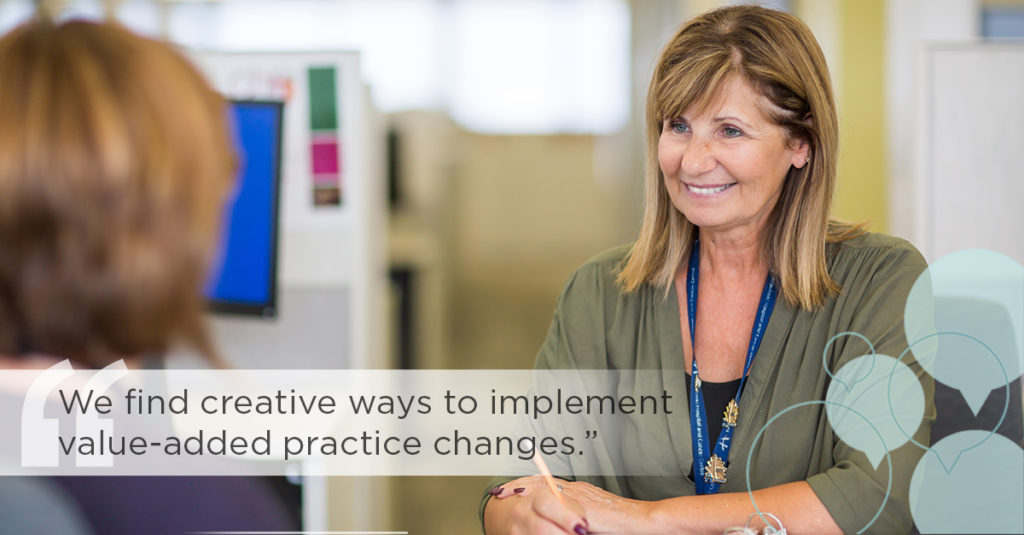
Introducing… a patient safety specialist
Millie Walker is a patient safety specialist based at our King West site. She’s worked at HHS for 38 years, starting her career in nursing. Millie collaborates and supports our various programs and services to ensure the patient safety program is executed regularly at our hospitals.
What do you love most about your role?
I love the people I work with at our new King West location. We have a great working relationship and are always there to support each other.
What do you find challenging?
It’s consistently a challenge trying to find creative ways to implement practice changes so staff will see value in the change. In a complex organization like HHS, staff receive updates on processes almost every day. What we try to do is make those changes impactful so our people can see what’s in it for them and their patients.
People might be surprised at how much useful information we can gather from reviewing medical charts.
Describe a typical day
A specialist can help detect errors and near-misses by reviewing patient medical records and using the information to improve patient safety. We will gather data from internal and external sources to establish benchmarks, then collect information on lessons learned from patient safety initiatives throughout the country that can apply to HHS. Oftentimes, our team will provide expertise to units and departments with the goal of improving a specific operational issue. This can include reviewing C. diff cases or implementing a safety bundle within a unit.
Tell us about your most gratifying experience at HHS
I had the opportunity to work on a project that involved implementing surgical checklists for the diagnostic imaging (DI) unit. This was a challenging feat since the DI process is entirely different from the operating room (OR) though the initiative incorporates similar requirements. There was a lot of effort to adapt the OR safe surgical checklist to the DI process. It was great to land on a checklist that worked for DI, which staff and leaders appreciated. It’s always gratifying to see your work being tied to the clinical programs we have at HHS.
What’s one thing people would be surprised to learn about your role?
People might be surprised at how much useful information we can gather from reviewing medical charts and auditing several different sources.
